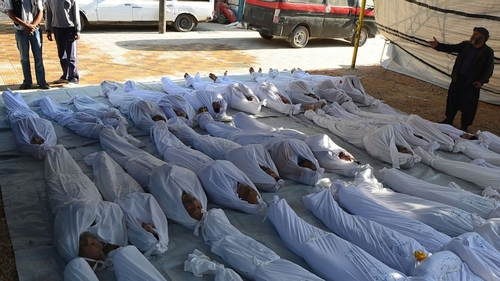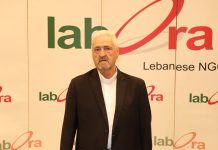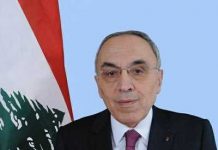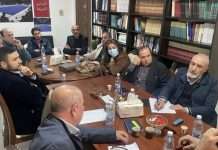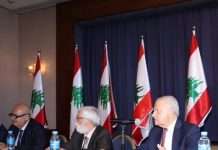A Syria breakthrough? Don’t hold your breath
Joyce Karam/Al Arabia/Thursday, 23 July 2015
In the last four years, the Barack Obama administration has consistently played up the prospects of a political solution in Syria while the reality on the ground, in the region and vis-a-vis Russia pointed in the direction of a stalemate. The Geneva 1 and Geneva 2 processes along with the envoy-ship of former U.N. Secretary General Kofi Annan and the stellar Arab diplomat Lakhdar Brahimi all yielded no results, and the current mission of U.N. envoy Staffan De Mistura does not hold more promise. Today, there is renewed talk from the White House about a political process following the nuclear agreement with Iran and a more “open” Russian position. Hope springs eternal in public diplomacy, though in Syria neither the conditions on the ground nor the positions of the main players are conducive for a political settlement.
Waiting for Russia
In his interview with Tom Friedman of “The New York Times” and later on in his press conference on the Iran deal, President Barack Obama spoke of a change in the Russian position on Syria, and new willingness on Washington’s part to bring Iran to the table. Obama’s hopeful diplomatic tone aside, there is little or no indication from Syria that a political solution is in the horizon
Obama told Friedman : “I was encouraged by the fact that (Russian President) Mr. Putin called me a couple of weeks ago and initiated the call to talk about Syria.” He referenced a new recognition from the Kremlin that “the Assad regime is losing a grip over greater and greater swathes of territory inside of Syria and that the prospects for a takeover or rout of the Syrian regime is not imminent but becomes a greater threat by the day.” A day later, the U.S. President called for “a process to resolve the civil war in Syria”, noting the importance of including Iran in such “conversation.”
Obama’s hopeful diplomatic tone aside, there is little or no indication from Syria that a political solution is in the horizon. Western diplomatic sources tell me that there is “no substantial shift in Russia’s position” except “for their willingness to have a conversation on Syria prompted by their increased fear of Chechnian recruits and returnees from Jihadist groups (including ISIS).” When it comes to discussing a new power structure in Syria, however, the Russian leadership is not giving up on its deep rooted influence within the Assad regime. “They want everyone to come to their side and fight terrorism without agreeing to a bigger set of changes in the regime in Syria” says one diplomat.
Deep regional split
The conversation with Iran, on the other hand, holds even lower prospects in light of a much deeper divide and higher sense of anxiety between Iran and the regional neighbors. Following the nuclear deal, higher metrics are being drawn regionally by the major players and those apply to Syria. At the Camp David summit last May, key Arab participants told the U.S. President that accepting a Hezbollah and Iran dominated Syria is a redline for the GCC states. While there was willingness to work with elements in the Assad regime and Russia towards a political settlement, countering Iran’s military role in Syria was communicated at the highest levels by key GCC representatives to Obama. While there were also differences among the GCC countries on what to do next in Syria, the participants agreed on countering Iran’s role in war-ravaged Syria. An Arab diplomat tells me that following the nuclear agreement, “there is even more commitment on our part to push against Iran and Hezbollah in Syria.” While a U.S. conversation with Tehran could help in starting a process and creating diplomatic space, reconciling regional differences is not foreseeable in the near future in Syria.
Gloomy forecast
As the regional split widens and Iran gains more influence inside the Assad regime, the next phase in Syria will be a replay of the one before, with each side trying to change the battle lines. Unless these lines are reshaped dramatically in the major cities, or both sides are exhausted, a political solution remains out of sight. Even if the U.S. throws its weight behind a diplomatic process, the battle lines inside Syria give Washington little leverage in steering the conflict. It is regional players, including Qatar, Saudi Arabia, Turkey and Iran who have the most influence inside Syria today and the likelihood of them reaching consensus is lower than it ever was in the last four years. The Assad regime for its part feels buoyed by the Iran nuclear deal, which could extend a much needed financial line to his troops and Hezbollah. This will be met by a bigger push from the Arab countries and Turkey to throw more support behind the rebels. The U.S. and Western partners are privately not betting on a political settlement in Syria anytime soon, and are instead choosing alternatives that would grant them more leverage in the battlefield and focus on fighting ISIS. Hence, the Train and Equip program is designed to gradually deploy U.S. trained rebels in the field to fight ISIS. While the initial number of these fighters deployed is small, it is expected that it would increase quarterly and that these rebels would “blend in” with bigger groups.For now, the statements on a diplomatic solution in Syria should be taken for what they are worth: a saving face tactic to cover up failure in stopping the bloodshed and the agony of millions in the last four years.
Will Iran pull off its nuke deal?
Mohammed Fahad al-Harthi/Al Arabiya
Thursday, 23 July 2015
With Iran publicly meeting the country it has called “the Great Satan,” and the West aiming to win contracts for Iranian projects, today is very dissimilar to yesterday. The region, known for its never-ending wars and conflicts, is taking a new shape. The U.S. is pursuing a new and different policy in the region. From being the one lobbying for an Iranian boycott, the U.S. is now trying to convince the world of the wisdom of the nuclear deal — both at the U.N. and ultimately in the U.S. Congress. This is politics. These developments, however, leave the Arabs facing a new reality. Iran, a country with influence in some Arab countries, has waged proxy wars in the region. Though it struggled under the weight of sanctions, it still managed to carry out its expansionist policies and may now be poised for more of the same. The region is at a crossroads. The question is not whether the deal will pass but rather what will result from it. Despite the feelings and desires of individual states, the deal ushers in a new political reality in the region.Iran is an important country with an influential role and it is a mistake to look at our relationship through the prism of a Sunni-Shiite divide or even an Arab-Persian conflict. Analysts, both good and ill-intentioned, try to promote these ideas but the difference between Arab countries and Iran is a mere political dispute.
Changing relations
In different times and under various governments in Iran, Gulf-Iranian relations changed significantly. When hard-liners were in power — specifically the previous government headed by Mahmoud Ahmadinejad — relations showed serious strains and divergences. Iran suffered international political isolation due to its policies which contradicted international law as well as the accepted norms of diplomatic relations. Is Hassan Rowhani the decision-maker or does political power rest with the so-called supreme leader Ali Khamenei, thus limiting the president’s options?
Once Hassan Rowhani came to power as president, he sent positive signals suggesting a different political orientation. Yet, these signals were not translated into political reality in the region. The nuclear deal is one of the Iranian president’s most important achievements but there remains an overarching and unanswered question: Is Hassan Rowhani the decision-maker or does political power rest with the so-called supreme leader Ali Khamenei, thus limiting the president’s options? In many situations, Iran opted for what it saw as political realism whenever necessary. Ayatollah Khomeini’s description of accepting the cease-fire with Iraq as “drinking poison” eliminated the arguments made by him and his followers that a cease-fire would never happen. The facts on the ground, however, changed the realities.
Khamenei has always refused international inspections of nuclear reactors, saying that Iran was not subject to international restrictions. Now he himself has congratulated the negotiating team on the agreement and given it his support. Evidently, this is not an issue of ideology but a matter of coping with reality and interests even if it means going against all past statements as well as emotional public discourse. Iran today has a precious opportunity to set a new policy in the region. Past experience has shown that wars and interventions only led to tragic realities producing terror and chaos in the region. This opportunity requires careful consideration and experimenting with different political possibilities and, above all, it requires courage and taking the initiative by all in the region.
Competitive country
If the region is able to cooperate for development and building, and use its resources for the happiness of its people, its ability to compete in the world will be much different from what it is today. It may seem that this is a modern type of pragmatic political utopianism, but these are the same incentives that made “frenemies” share a room for weeks in order to reach an agreement that was once deemed impossible.The Gulf has a different political reality and so political work should move to a new level. With the new facts, international calculations have changed and things are not the same anymore. It would therefore be wrong to stick to the same old policies in the face of the new reality. The Gulf states need to strengthen their political interdependence. The success of the Gulf states in Operation Decisive Storm can be a good foundation for unified political positions and homogeneous political, economic and military actions. Saudi Arabia’s recent choices, linking mutual interests with those of countries such as Russia, illustrate how interests drive politics. The Gulf states combined have a huge potential, strong political power and a dynamic international impact. It is vital to strengthen their internal structures in order to succeed externally. The new political reality is not necessarily negative though it is different. In light of the changes, there are opportunities that necessitate new vision and quick decisions.













